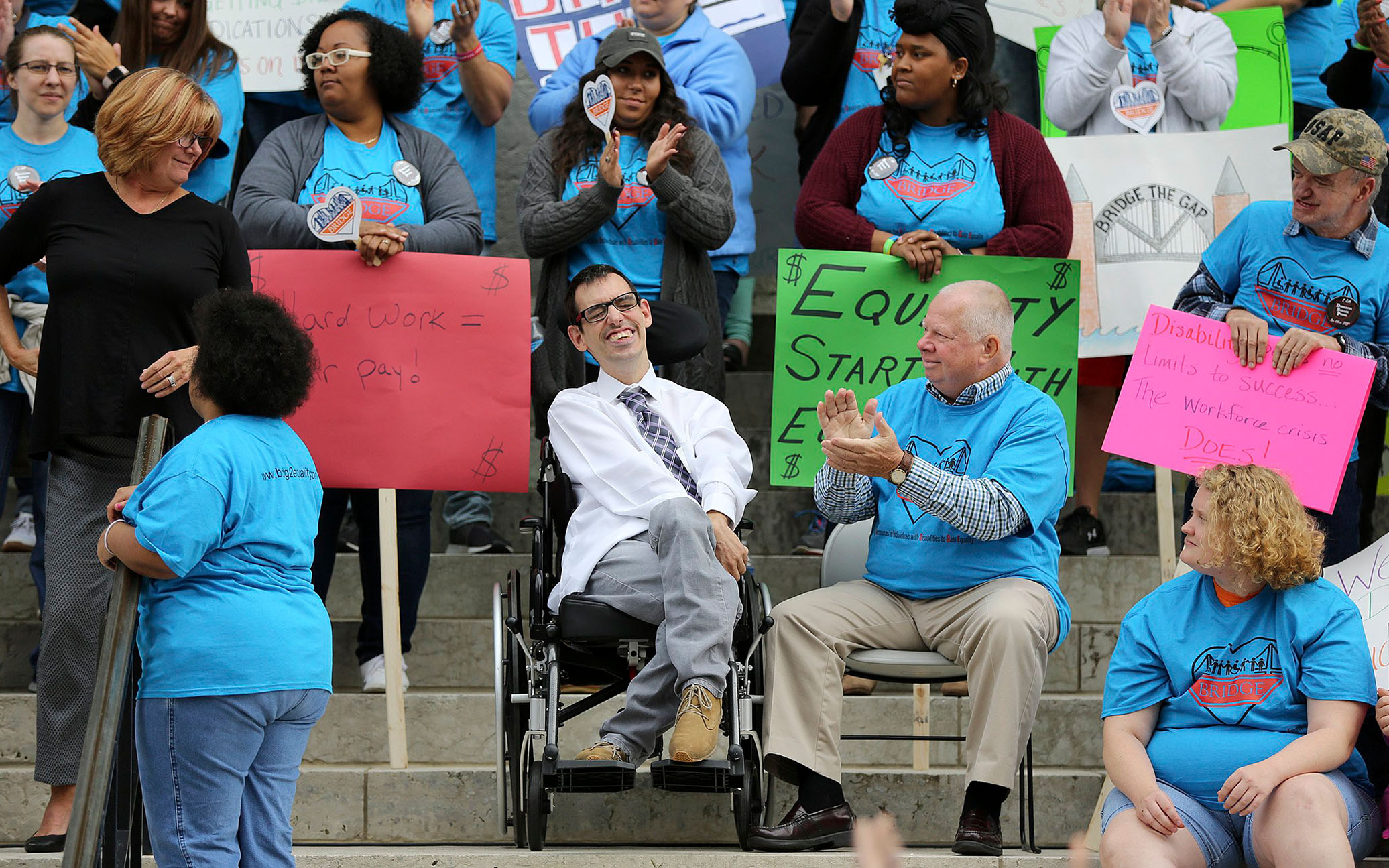Direct support workers who care for people with disabilities gathered at the Ohio Statehouse in 2018 to raise awareness about labor shortages and low wages in the care industry. (Jonathan Quilter/Columbus Dispatch/TNS)
The federal government is considering whether to start tracking the number of direct support professionals, a move that advocates call an important first step toward alleviating a severe shortage of workers who care for people with developmental disabilities.
The White House Office of Management and Budget is seeking input on potential changes to the Standard Occupational Classification Manual, which outlines how federal agencies classify occupations for data collection purposes. Among the options is whether to add “care workers” to the manual, and if so, how to name and define the occupation.
Currently, DSPs are often lumped together with home health aides, personal care aides, certified nursing assistants and other occupations that don’t accurately describe what DSPs do, meaning policymakers lack the data they need to address the shortage of workers providing home- and community-based services, advocates say.
ADVERTISEMENT – CONTINUE READING BELOW
“Unique DSP occupation codes will enable the U.S. Bureau of Labor Statistics to accurately capture occupation-specific employment and wage data, which will in turn help federal and state policymakers inform and influence future policy,” more than two dozen disability advocacy groups wrote in a letter to lawmakers earlier this month. “Accurate and comprehensive data on DSPs is essential to understanding the workforce crisis and developing effective solutions.”
The request for comment from the Office of Management and Budget comes as Congress is moving forward with legislation to address the data gap on DSPs by adding standard occupational classification codes for these workers and putting pressure on the budget office. The bill, known as the “Recognizing the Role of Direct Support Professionals Act,” passed the U.S. Senate unanimously in March and was approved by a House committee earlier this month.
Lydia Dawson, vice president of government relations for the American Network of Community Options & Resources (ANCOR), which represents 2,100 disability service providers nationwide, said that while a congressional act would not be needed to add the code, “it would send a message to OMB about the importance of addressing the lack of DSP classification.”
Dawson noted the urgency: The Office of Management and Budget is currently reviewing changes for inclusion in the 2028 manual. Once that process is complete, no additional revisions are expected until 2038, Dawson said.
The Office of Management and Budget is accepting comments until August 12 on possible changes to the Standard Occupational Classification Manual.
Read more stories like this: Sign up for Disability Scoop’s free email newsletter to receive the latest developmental disability news straight to your inbox.

